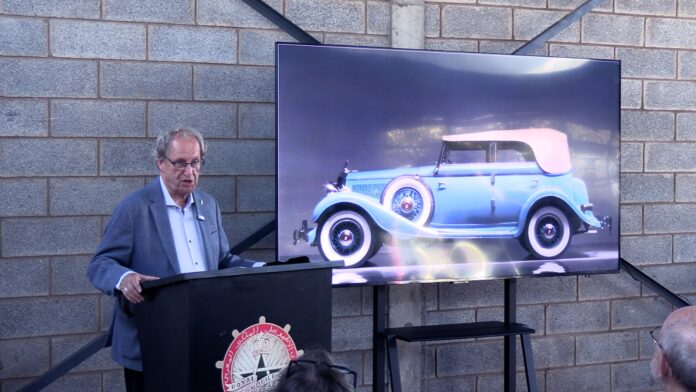Tiddo Bresters, President of the International Federation of Historic Vehicles (FIVA), made a landmark visit to Casablanca yesterday, bringing together a diverse group of automotive experts, cultural figures, and sports personalities. Their shared mission: to elevate the preservation of historic vehicles in Morocco and across Africa. The event, held at the Automobile Club Museum in Bouskoura, was organized in partnership with key national and continental institutions active in the vintage car scene.
The gathering was chaired by Abdellah Abdellaoui, President of the African Federation of Historic Vehicles (FAVA), and Khalid Kabbaj, head of the Moroccan Federation of Historic Vehicles (FMVA). Also in attendance were representatives from the Royal Automobile Club of Morocco (RACM), government officials, collectors, and enthusiasts—all united by a deep appreciation for the cultural and historical value of vintage automobiles.
Discussions throughout the event underscored the growing commitment of Morocco and several African nations to preserving classic cars—not merely as collector’s items, but as living witnesses to industrial, cultural, and social history. The conference also opened the door to new cooperative ventures with FIVA, aiming to create long-term, continent-wide partnerships that would help structure and scale preservation efforts.
Khalid Kabbaj paid special tribute to Rafik Kamal Lahlou, a driving force behind Morocco’s accession to FIVA in 2016, and praised his tireless work in promoting automotive heritage throughout the country.
FIVA, recognized by UNESCO under the Convention for the Safeguarding of Intangible Cultural Heritage, now spans more than 90 member countries. The organization’s mission goes beyond the preservation of vintage cars themselves—it includes safeguarding the skills, traditions, and historical narratives tied to the world of historic vehicles, ensuring this knowledge is passed on to future generations.
Bresters’ visit signals FIVA’s increasing focus on Africa and highlights Morocco’s central role in this movement. It also reflects the vitality of the FMVA, the leadership of the FAVA, and the RACM’s active involvement in promoting automotive culture. This high-profile moment cements Morocco’s status as a key player in the global effort to protect and celebrate automotive heritage.
